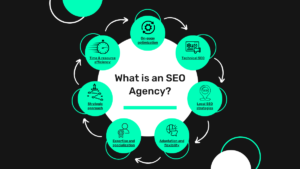Introduction:
In today’s digital world, having a solid online presence is crucial for the success of any business or website. One of the critical factors in achieving online visibility is optimizing your website for search engines. Search engine optimization (SEO) improves your website’s visibility in search engine results pages (SERPs), which ultimately helps drive organic traffic to your site. This article will explore some essential strategies to optimize your website and improve its search engine rankings.
Conduct Keyword Research:
Keyword research is the foundation of effective SEO. By identifying the right keywords and phrases, you can align your website’s content with what your target audience is searching for. Here’s how to conduct keyword research:
- Identify relevant keywords: Consider the terms and phrases your potential visitors would use to find products, services, or information related to your website. Put yourself in their shoes and brainstorm a list of keywords that come to mind.
- Utilize keyword research tools: Use powerful keyword research tools like Google Keyword Planner, SEMrush, or Ahrefs. These tools provide valuable insights into search volume, competition, and related keywords.
- Uncover long-tail keywords: Long-tail keywords are more specific and typically contain three or more words. They may have low er search volume but are often less competitive, making it easier to rank for them. Long-tail keywords can be a valuable addition to your SEO strategy.
- Incorporate keywords strategically: Once you have a list of relevant keywords, integrate them into your website’s content. Place keywords in the page titles, headings, meta descriptions, URLs, and throughout the body of the content. However, avoid keyword stuffing, as it can harm your rankings.
Effective keyword research ensures that your website aligns with the search intent of your target audience, increasing the chances of ranking higher in search engine results.
Now, let’s move on to the next step of optimizing your website for search engines.
Create High-Quality and Engaging Content:
When it comes to SEO, content is king. High-quality, engaging content attracts visitors and helps search engines understand the relevance and value of your website. Here’s how to create content that resonates with both users and search engines:
- Address user needs: Understand your target audience’s needs, pain points, and questions. Create content that provides valuable information, answers their queries, and solves their problems. You establish your website as a trustworthy and authoritative source by addressing user needs.
- Craft unique and well-structured content: Avoid duplicating content from other websites. Instead, strive for originality and present your ideas in a structured and organized manner. Use headings, subheadings, and bullet points to enhance readability.
- Incorporate keywords naturally: As mentioned earlier, integrate your target keywords into your content. Focus on creating valuable content for users; the keywords will naturally fit in.
- Regularly update your website: Search engines prefer frequently updated websites with fresh content. Regularly publishing new articles, blog posts, or updates shows search engines that your website is active and relevant.
Create High-Quality and Engaging Content:
When optimizing your website for search engines, content is a critical key. Creating high-quality and engaging content can significantly improve your website’s visibility and user experience. Here are some important considerations:
- Craft unique, informative, and well-structured content: Focus on providing valuable information to your audience. Your content should be unique, informative, and well-written. Address the needs and interests of your target audience and strive to solve their problems or answer their questions. Present your content clearly and organized, using headings, subheadings, and bullet points to enhance readability.
- Incorporate target keywords naturally: While it’s essential to include relevant keywords in your content, it’s equally crucial to do so naturally. Avoid keyword stuffing, which can harm your rankings and make your content less engaging. Instead, seamlessly integrate keywords into your content where they fit naturally and make sense in the context of the topic.
- Regularly update your website with fresh content: Search engines love fresh and up-to-date content. You periodically added new content to your website, signaling to search engines that your site is active, relevant, and valuable to users. Consider maintaining a blog or news section where you can publish regular updates, articles, or industry insights. This practice helps with SEO, keeps your audience engaged, and encourages them to return to your site.
Creating high-quality and engaging content is an ongoing process. Continuously analyze user feedback and search engine data to refine and improve your content strategy.
Optimize On-Page Elements:
Optimizing the on-page elements of your website is essential for improving its visibility in search engine results. Here are some features to focus on:
- Optimize title tags, meta descriptions, and header tags: Title tags and meta descriptions appear in search engine results and play a crucial role in attracting user clicks. Include relevant keywords in your title tags and meta descriptions while ensuring they accurately reflect the content of each page. Header tags (H1, H2, etc.) help structure your content and make it easier for search engines to understand the hierarchy and importance of different sections.
- Use descriptive alt tags for images: Search engines cannot interpret images, so it’s essential to use them. Alt tags provide context to search engines and help visually impaired users understand the image’s content. Incorporate relevant keywords naturally into alt tags when appropriate.
- Ensure clean, concise URLs with relevant keywords: Use descriptive and keyword-rich URLs that convey the content of each page. Avoid lengthy URLs filled with unnecessary characters or numbers. A clean and concise URL structure makes it easier for search engines and users to understand the purpose of each page.
- Make your website mobile-friendly: With the increasing use of mobile devices, it’s crucial to have a mobile-friendly website. Responsive design ensures your website adapts and displays correctly on different screen sizes and devices. Mobile-friendliness is essential for user experience and a ranking factor for search engines.
Improve Website Loading Speed:
Website loading speed is critical for both user experience and search engine rankings. A fast-loading website can significantly improve your SEO efforts. Here are some strategies to improve your website’s loading speed:
- Compress images and minify code: Large and unnecessary image files can slow down your website. Compress your images to reduce their file size without compromising quality. Minify your CSS and JavaScript files to remove unnecessary characters and whitespace, improving loading times.
- Enable browser caching: Browser caching temporarily stores some aspects of your website on a user’s device. This way, when users revisit your site, their browser can retrieve cached files instead of fetching them from the server again. This reduces loading time and improves overall website performance.
- Choose a reliable web hosting provider: Opt for a reputable web hosting provider that offers reliable server infrastructure and fast loading times. A dedicated host ensures that your website is accessible and performs optimally.
- Consider using content delivery networks (CDNs): CDNs distribute your website’s content across multiple servers worldwide. When a user accesses your website, the content is delivered from the server closest to their location, reducing server response time and improving loading speed.
Implementing these strategies will enhance your website’s loading speed, leading to a better user experience and improved search engine rankings.
Build High-Quality Backlinks:
Building high-quality backlinks is crucial for improving your website’s authority and visibility in search engine results. Here are some effective strategies to build backlinks:
- Focus on reputable websites within your industry: Seek backlinks from authoritative websites relevant to your industry or niche. These links carry more weight and credibility in the eyes of search engines.
- Create shareable content: Produce high-quality and valuable content that others in your industry would want to share. This can include informative blog posts, research papers, infographics, or videos. Shareable content increases the likelihood of earning natural backlinks.
- Reach out to influencers: Identify influencers or thought leaders in your industry and establish relationships with them. Engage with their content, offer valuable insights, and ask if they would be interested in linking to your website if it aligns with their content and audience.
- Guest post on authoritative websites: Contribute guest posts to reputable and relevant websites within your industry. This allows you to showcase your expertise, reach a broader audience, and earn backlinks from the author’s bio or within the content.
Building high-quality backlinks requires time, effort, and relationship-building. Focus on quality over quantity to ensure the best impact on your website’s SEO.
Optimize for Local Search:
Optimizing your website for local search is essential if you have a physical location or target a specific area. Here are some strategies to enhance your local search presence:
- Claim and optimize your Google My Business listing: Create a Google My Business account and claim your business listing. Provide accurate and detailed information about your business, including your address, phone number, business hours, and website. Encourage customers to leave reviews on your Google My Business profile.
- Include location-specific keywords: Incorporate location-specific keywords naturally into your website’s content, meta tags, headings, and URLs. This helps search engines understand the geographical relevance of your business.
- Encourage customers to leave reviews: Positive reviews improve local search rankings and build trust and credibility. Encourage satisfied customers to leave reviews on platforms like Google, Yelp, or industry-specific directories.
Monitor and Analyze Your Website’s Performance:
Monitoring and analyzing your website’s performance is crucial for understanding your SEO efforts’ effectiveness and identifying areas for improvement. Here’s how you can do it:
- Use web analytics tools like Google Analytics: Implement a tool like Google Analytics to gather valuable data about your website’s performance. It provides insights into visitor behavior, traffic sources, popular pages, and more.
- Track organic traffic, bounce rate, conversion rates, and keyword rankings: Monitor the organic traffic your website receives from search engines. Analyze the bounce rate, which indicates the percentage of visitors who leave your site without exploring further. Monitor conversion rates to understand how effectively your website drives desired actions, such as purchases, sign-ups, or inquiries. Additionally, track your keyword rankings to see how well your website performs in search engine results for target keywords.
- Gain insights and identify areas for improvement: Analyzing the data from web analytics tools allows you to gain insights into user behavior and identify areas where your website can be optimized. For example, if you notice a high bounce rate on certain pages, you may need to improve the content or user experience. If specific keywords are not performing well in search engine rankings, you can consider adjusting your keyword strategy or optimizing your content.
Regular monitoring and analysis of your website’s performance provide valuable information for refining your SEO strategy and maximizing your website’s potential.
Conclusion:
Optimizing your website for search engines is an ongoing process that requires continuous effort and adaptation. By implementing the strategies discussed in this guide, you can enhance your website’s visibility in search engine results, attract organic traffic, and grow your online presence.




